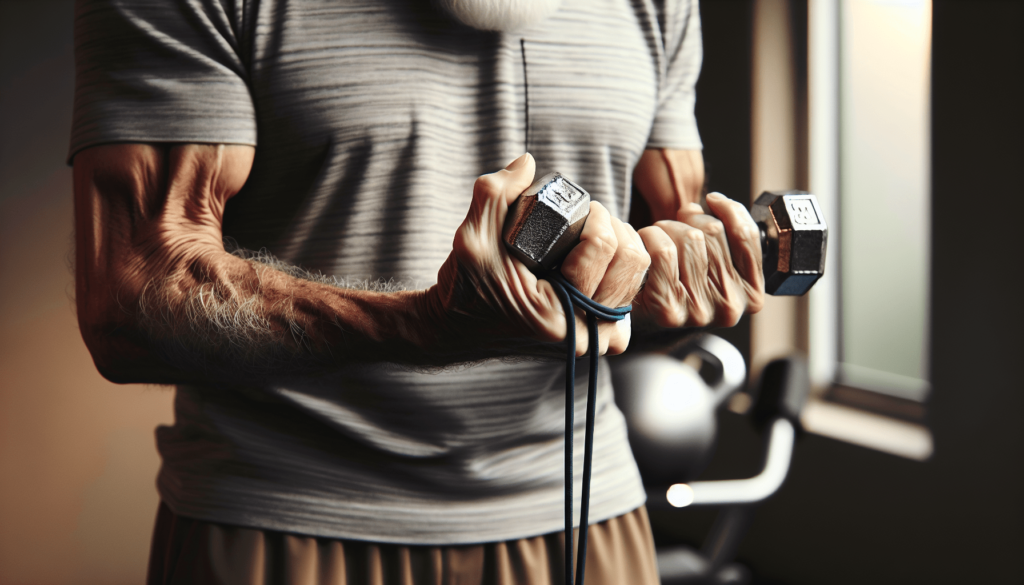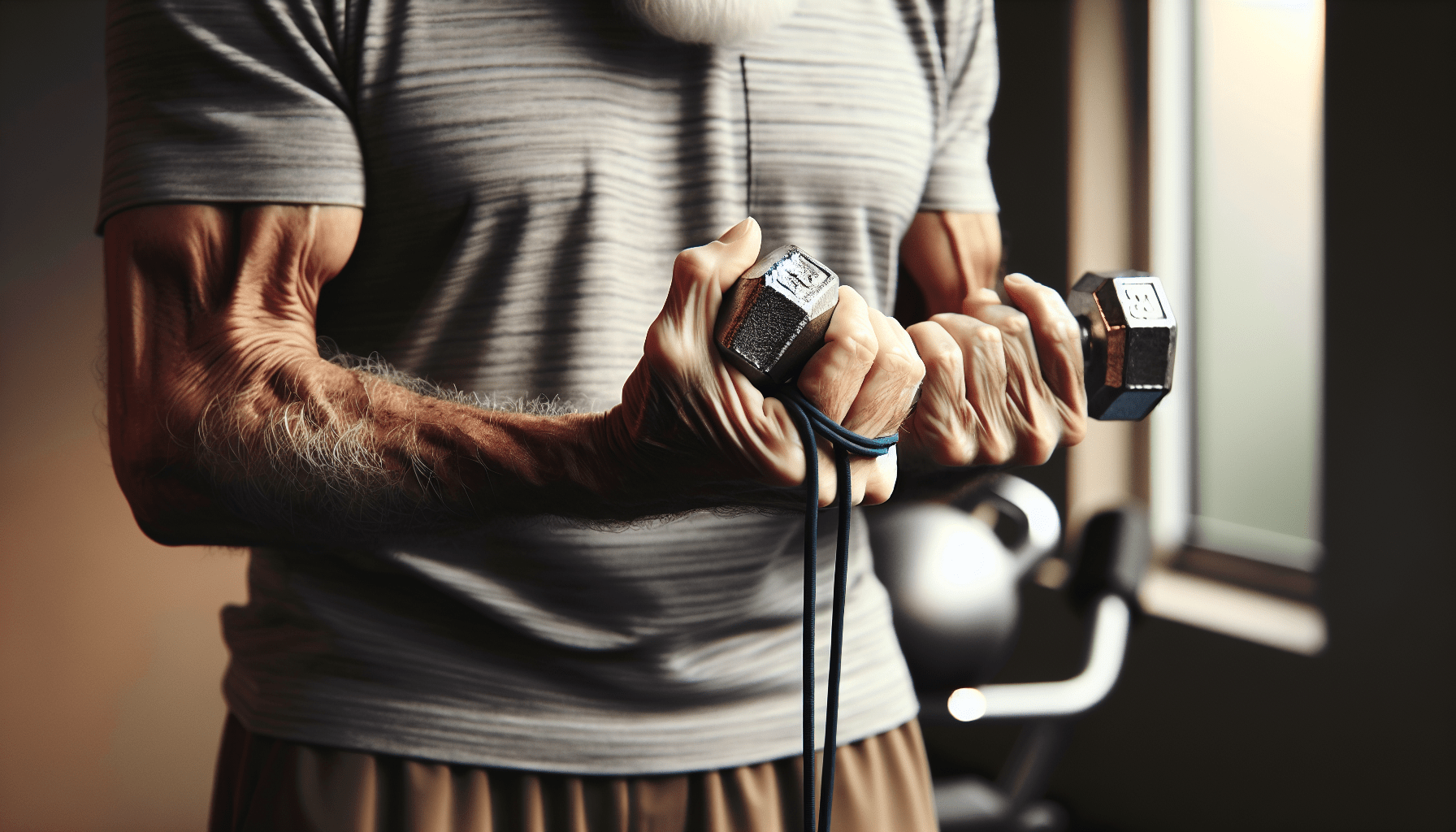How to Maintain Muscle Mass as You Age
Ever look in the mirror and ask, “Did my muscles make a break for it in the night?” Don’t fret; you’re not alone, and no, your biceps didn’t sneak out for late-night tacos. Maintaining muscle mass as you age can feel like trying to keep a houseplant alive—seemingly simple, yet somehow mysteriously complex. Fear not! We have a guide that’s easier to digest than a Friday night pizza binge.
The Mysterious Disappearing Muscles
The Great Muscle Vanishing Act
As you age, your body performs a Houdini act on your muscles called sarcopenia. This fancy term describes the loss of muscle mass and strength over time. Now, wouldn’t it be amazing if the same thing happened to belly fat? Life’s not fair, but the good news is that you can slow down, or even reverse, this vanishing act.
The Science-y Stuff
Without turning this into a snooze-fest, let’s touch on the science. Around the age of 30 (I know, right? So young!), you start losing muscle mass at a rate of 3-8% per decade. Sounds like a lot, but imagine thinking of it like losing a single potato chip from your giant party-sized bag. As the years go by, however, those missing chips add up, and by 60, your bag looks pitifully empty.
Strength Training: The Unsung Hero
Lifting Heavy Things
Time to worship at the altar of strength training. If cardio is the comic relief, strength training is the main event. Lifting weights will help you build and maintain muscle mass, and it doesn’t hurt that it gives you an excuse to grumble about the price of protein powder.
Let’s Break It Down
Strength training should ideally happen two to three times a week. When lifting, aim for 8-12 reps per set. In simpler terms, lift until you feel like you’d rather eat a week-old salad than do another rep. Rest for about a minute, rinse, and repeat.
Table: Simple Strength Training Regimen for Beginners
| Exercise | Sets | Reps | Rest Time |
|---|---|---|---|
| Squats | 3 | 8-12 | 1 minute |
| Deadlifts | 3 | 8-12 | 1 minute |
| Bench Press | 3 | 8-12 | 1 minute |
| Bent Over Row | 3 | 8-12 | 1 minute |
| Overhead Press | 3 | 8-12 | 1 minute |
| Bicep Curls | 3 | 8-12 | 1 minute |
Protein: The Building Blocks
Eat Your Protein, Seriously
Picture this: Your muscles are like tiny little construction workers. They need bricks to build, and protein is your muscle-brick. Sources include meat, fish, dairy, legumes, and anything else that sounds morally and ethically compatible with your diet.
How Much to Eat
According to the wise gym sages, you should aim for about 1.2 to 2.0 grams of protein per kilogram of body weight. Calculating that might seem like doing algebra while hungry, but it’s worth it. Ideally, spread your protein intake throughout the day like you spread frosting on a cake—generously, but evenly.
Table: Protein-Rich Foods and Their Protein Content
| Food Item | Protein (grams per 100g) |
|---|---|
| Chicken Breast | 31 |
| Salmon | 25 |
| Eggs | 13 |
| Quinoa | 14 |
| Almonds | 21 |
| Greek Yogurt | 10 |

Cardio: Friend or Foe?
The Cardio Conundrum
Cardio and strength training are like the cream cheese and jelly of exercise; unconventional but effective when mixed right. Excessive cardio can interfere with muscle gains—it’s like trying to fill a bathtub while the drain is open. The trick is moderation.
Types of Cardio
Opt for low-impact cardio such as walking, swimming, or cycling. Doing this for about 150 minutes per week will keep your heart happy without making your muscles want to file for unemployment.
Recovery: The Overlooked Hero
Not Just for Lazy Days
Rest days are like bad dates—they’re absolutely necessary so you can appreciate the good ones. Adequate muscle recovery is essential for gains. After all, muscles grow while you’re resting, not while you’re attempting to murder yourself with deadlifts.
The Sleep Factor
If you’re thinking, “I’ll sleep when I’m dead,” let’s adjust that to, “I’ll be dead sooner without sleep.” Aim for 7-9 hours a night to give your muscles the TLC they need.
Lifestyle Adjustments
Hydration Station
Water is not just for making coffee. Keeping hydrated is crucial for muscle function. Aim for about 3 liters per day if you’re male, and 2.2 liters if you’re female. Carry that water bottle like it’s your new best friend.
Stress Less, Lift More
Stress is a muscle killer; it’s the freeloading roommate that eats all your food and pays no rent. Practicing mindfulness exercises can actually help you maintain muscle mass. So next time someone tells you to “just breathe,” try not to punch them—it’s actually good advice.
Table: Simple Stress-Reduction Techniques
| Technique | Description |
|---|---|
| Deep Breathing | Inhale deeply, hold, then exhale slowly |
| Yoga | Balance and stretch while finding your Zen |
| Meditation | Spend 10-15 minutes focusing on your breath |
| Reading | Escape into another world through your favorite book |
| Nature Walk | Enjoy a short, peaceful stroll outside |
Muscle Maintenance in Your Golden Years
For the 50+ Crowd
Your golden years aren’t just for sitting in a rocking chair reminiscing about the good old days when gas cost a dollar a gallon. With the right strategies, you can maintain and even build muscle, living proof that age is just a number (albeit your knees might disagree).
The Importance of Consistency
Consistency trumps intensity. Even short, regular workouts can do wonders. Think of it like brushing your teeth—a little bit every day keeps the bad stuff away.
Communing with the Pros
Consider consulting a specialized trainer. Not your neighbor’s cousin who once deadlifted a turkey, but someone certified to guide you through a safe, effective program.
Fun Alternatives to Traditional Workouts
Functional Exercises
Bored of the gym? Turn daily activities into exercises. Carry your groceries, take the stairs, or wrestle with your grandkids. Functional exercises keep you fit without the monotony.
Dance it Out
Ever try Zumba? It’s like a party where you accidentally leave with toned quads and a sweaty T-shirt. Dancing burns calories, builds muscle, and makes you forget you’re exercising.
Table: Fun and Functional Activities to Maintain Muscle
| Activity | Benefits |
|---|---|
| Gardening | Squatting, lifting, and stretching |
| Hiking | Enhances lower body strength and cardiovascular fitness |
| Tai Chi | Improves balance and muscle tone |
| Playing Fetch | Motion and bending (works with both kids and pets) |
Mind Over Muscle
Positive Visualization
Visualize your success. Seriously, imagine those bulging biceps as you open the pickle jar effortlessly. Positive visualization is not just for hippies; it actually motivates and enhances performance.
Community and Support
Surround yourself with like-minded people. Join a fitness group or social media community. Misery might love company, but so does progress. Plus, you’ll have someone to complain to about leg day.
Final Thoughts
Your muscles are like good stories—they improve with a little effort and the right strategy. Aging doesn’t mean you have to surrender to the inevitability of bingo wings and weak glutes. By incorporating strength training, eating right, staying consistent, and fostering a positive mindset, you’ll keep your muscles as sturdy as your grandma’s holiday fruitcake.
So go forth and flex, whether it’s under heavy weights or while changing the TV channel. Your muscles are your lifelong companions, and it’s time to treat them right. No more excuses, no more letting your muscles sneak away like Houdini. You’re in control now, and those abs are going nowhere.
Now stop reading and go lift something—your future self will thank you. And maybe, just maybe, you’ll make those pesky 30-year-olds jealous.
